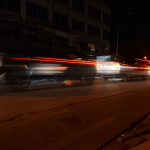Driving Safely in Cold Temperatures
The first real cold snaps of the season are upon us here in Lafayette, Acadiana and all of South Louisiana. (Or so they say) Whether you are here in Lafayette, Abbeville, Kaplan, Opelousas, Ville Platte, or Morgan City, the personal injury lawyers at Joseph Joy and Associates hope you will take precautions to winterize your car or truck. The last thing anyone wants is to find their vehicle disabled because of cold-weather failures.
Even though we have already been advised at least once already to protect pipes and plants, NOAA’s Climate Prediction Center says warmer-than-average temperatures are forecast for much of the U.S. this winter. Although below-average temperatures are not favored, NOAA claims that cold weather is anticipated and some areas could still experience a colder-than-average winter. NOAA is also advising:
- No part of the U.S. is favored to have below-average temperatures this winter.
- Drier-than-average conditions are most likely for Louisiana, parts of Texas, Mississippi, Arkansas and Oklahoma as well areas of northern and central California.
That sounds ambiguous enough to mean just about anything. But here is a tried and true fact: All drivers need to winterize their vehicles for driving in cold weather, whether it is on icy roads or during a wintry storm. At Joseph Joy and Associates, our legal team has represented hundreds and hundreds of clients injured due to the fault of someone else. Please do your part to keep your vehicle safe.
All of us, regardless of where they live or might be travelling, are likely to face some type of severe winter weather at some point.
The most damaging of the types of severe winter weather in Louisiana are ice storms. Severe winter weather in Louisiana consists of freezing temperatures and heavy precipitation, usually in the form of rain, freezing rain, or sleet, but sometimes in the form of snow and ice. While Louisiana is far less likely to have heavy snow and ice accumulation than most other states, this type of severe winter weather can be expected to occur at least once each winter.
It is important to be prepared for winter weather before it strikes. Here are some tips from the Louisiana Department of Homeland Security and the legal team at Joseph Joy and associates on how to prepare for the upcoming winter cold snaps.
The fluctuation between daytime and nighttime temperatures can cause your tires to lose pressure as the air inside them expands and contracts so be sure and check your tire pressure to make sure your tires can grip the road as best they can.
When the temperature drops, so does battery power. For gasoline and diesel engines, it takes more battery power to start your vehicle in cold weather. For electric and hybridelectric vehicles, the driving range is reduced when the battery is cold, and battery systems work better after they warm up. Make sure your battery is up to the challenges of winter.
Have your mechanic check your battery for sufficient voltage, amperage and reserve capacity. Have the charging system and belts inspected. Replace the battery or make necessary system repairs, including simple things like tightening the battery cable connections.
The National Highway Traffic Safety Administration makes a good point: Every vehicle handles differently; this is particularly true when driving on wet, icy, or snowy roads. Take time now to learn how your vehicle handles under winter weather driving conditions.
Before driving your vehicle, clean snow, ice or dirt from the windows, the forward sensors, headlights, tail lights, backup camera and other sensors around the vehicle.
If you purchased a new vehicle, don’t assume anything about its safety features. Read your vehicle’s manual to familiarize yourself with the features on your vehicle—such as antilock brakes and electronic stability control—and how the features perform in slippery conditions. For example, your vehicle or pedals may pulsate when controlling traction.
For electric and hybrid-electric vehicles, minimize the drain on the battery. If the vehicle has a thermal heating pack for the battery, plug your vehicle in whenever it’s not in use. Preheat the passenger compartment before you unplug your vehicle in the morning.
When renting a car, become familiar with the vehicle before driving it off the lot. Know the location of the hazard lights switch in case of emergency, and review the owner’s manual so that you’re prepared for any driving situation that may arise.
Carry items in your vehicle to handle common winter driving-related tasks, such as cleaning off your windshield, as well as any supplies you might need in an emergency:
- Keep an ice scraper handy for those below freezing mornings.
- Jumper cables, flashlight, and warning devices such as flares and emergency markers.
- A cell phone with charger, water, food, and any necessary medicine (for longer trips or when driving in lightly populated areas).
In Lafayette and Acadiana, subfreezing temps practically shuts down commerce. Watch the local news and heed the warnings of local governments. If police are asking motorists to keep off the roads, then by all means stay home. If you absolutely must venture out in your vehicle in hazardous weather, plan ahead and drive defensively. Don’t rush; allow plenty of time to get to your destination safely. Plan to leave early if necessary.
Familiarize yourself with directions and maps before you go, even if you use a GPS system, and let others know your route and anticipated arrival time.
Make sure all the lights on your vehicle are in working order. Check your headlights, brake lights, turn signals, emergency flashers, and interior lights. Towing a trailer? Be sure to also check your trailer brake lights and turn signals. Trailer light connection failure is a common problem and a serious safety hazard.
Once you have taken all the necessary precautions to winterize your car or truck, remember to take care of yourself and loved ones. Bring pets/companion animals inside during winter weather. Move other animals or livestock to sheltered areas with non-frozen drinking water. Look out for the elderly as well. Check in on older family members and neighbors to make sure their heat is working properly.
The cold weather can catch up with us quickly as it seems like just days ago we were sweating in the searing heat of in Lafayette. Be safe and be prepared. Should you or a loved one suffer a significant personal injury due to the negligence or unpreparedness of someone else, please do not hesitate to call the personal injury and car accident attorneys at Joseph Joy and Associates in Lafayette. Contact us at (337) 232-8123. We’re ready to help.




